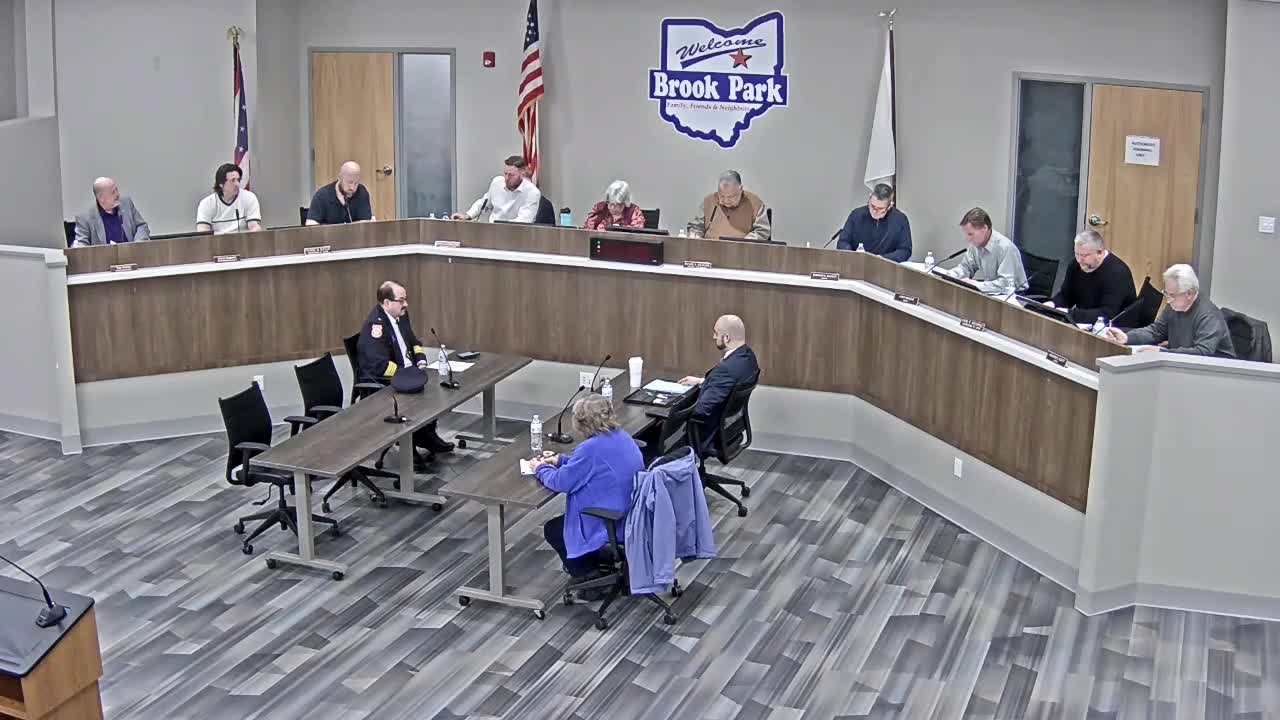Brook Park council discusses enforcement options for illegal dumping at cardboard dumpsters
Get AI-powered insights, summaries, and transcripts
Subscribe
Summary
Council added a citywide discussion on cardboard dumpsters to the agenda and heard options including relabeling, lids modification, rotating cameras, owner complaints for criminal charges, and the possibility of city-owned containers; no ordinance was adopted.
Council members added to the meeting agenda and then spent much of the session debating how to curb recurring illegal dumping and contamination at cardboard recycling dumpsters located around the city, with several council members, the mayor, the law director and the police chief weighing in on enforcement challenges and possible remedies.
The item is significant for neighborhood cleanliness, volunteer-run programs that sort recyclables, and the municipal costs of sorting contaminated loads. Council members said persistent problems have appeared at sites including the water park and a church that hosts a pantry; volunteers at Audrey's Outreach were named as affected by contaminated dumpsters.
Councilman Troyer introduced the discussion, saying contractors and nonresidents sometimes dump household garbage and construction debris into cardboard bins, creating an “eyesore” and contaminating recyclables. Councilman Messina and others said the problem is visible at Holland Road and Ingle Road sites and suggested practical deterrents such as cameras or consolidating containers. “I mean, that's a big eyesore,” Messina said, urging options that reduce visible trash.
Mayor Orcutt said the dumpsters at one location are owned by a private company under contract to pick up the material two to three times a week; he said the city has adjusted the pickup schedule to improve service. The mayor and others noted that, because the city does not own many of the rear-load dumpsters, the private owner would need to make complaints for criminal enforcement: the Law Director said criminal charges generally require a complaining victim and suggested that penalties for contractors found to be dumping could be stiffer than for individual residents. The Law Director recommended rotating roving cameras at problem sites and exploring legislation to allow enforcement based on camera evidence.
Police Chief Ed Powers explained enforcement limits: if the city does not own a receptacle, the company that owns the dumpster is the victim and must file a complaint before criminal action can proceed. The chief said violations could be pursued as theft-of-service, criminal mischief or trespass depending on circumstances, but each case is situational and often requires catching a person in the act or a complaint from the owner.
Council members proposed interim steps: relabeling bins “cardboard only,” fitting lids so large items cannot be dropped in, consulting the dumpster owners about lid modifications, and rotating visible cameras (some council members reported a private proprietor solved problems by posting a camera sign). Mayor Orcutt said the administration had applied for a grant to purchase city-owned containers that the city could control and collect revenue from, but the grant application was unsuccessful.
Council moved the discussion onto the agenda by roll call (motion passed). No ordinance was drafted or voted on at this meeting; council directed staff to research options including potential legislation, camera use and owner complaints to develop enforceable solutions.
Next steps: law director to investigate possible ordinance language and camera authority; police to advise on evidentiary needs for criminal charges; administration to continue exploring ownership/purchase of city-operated containers.
